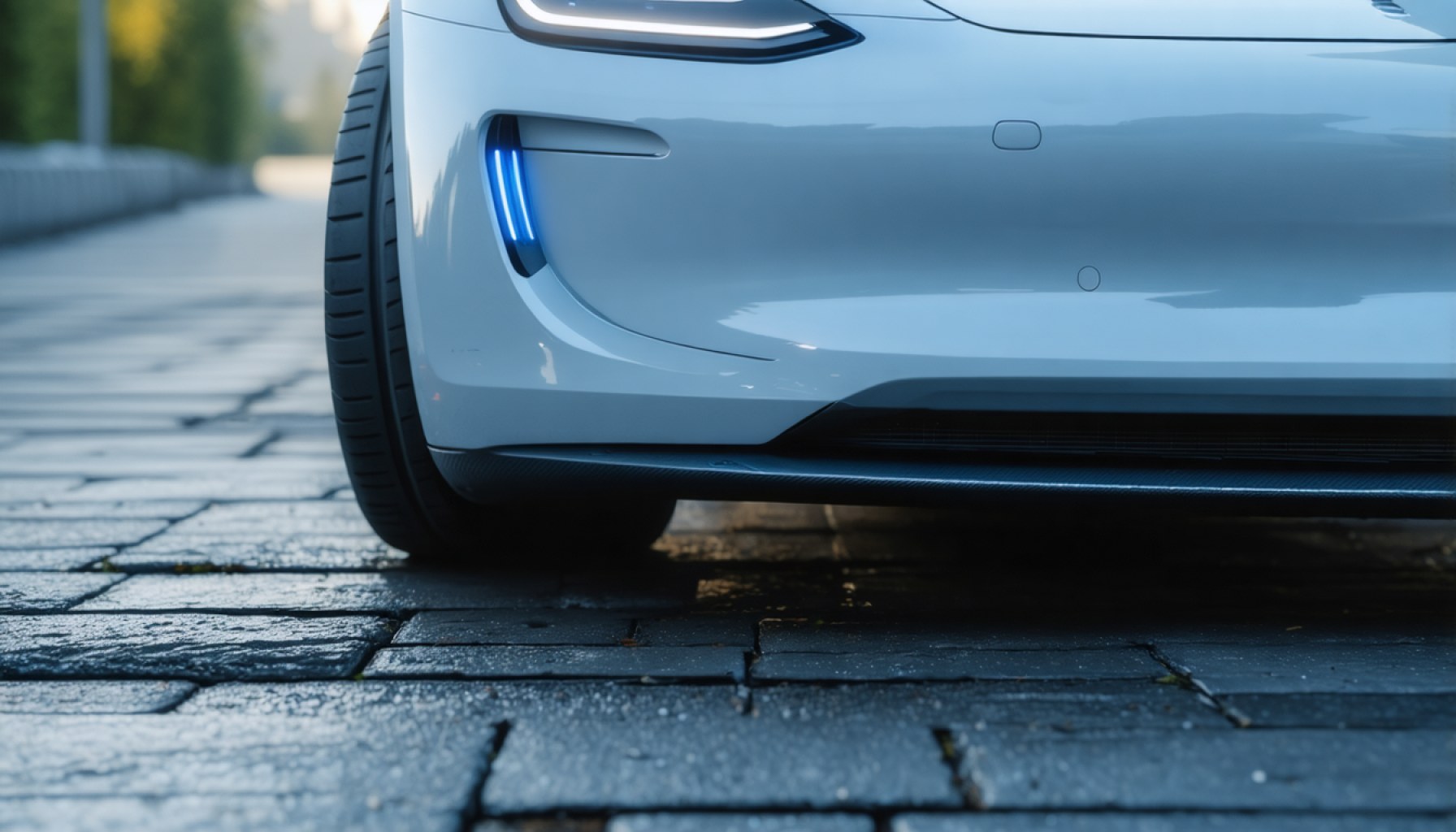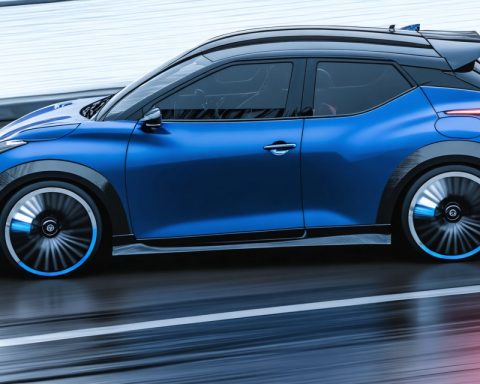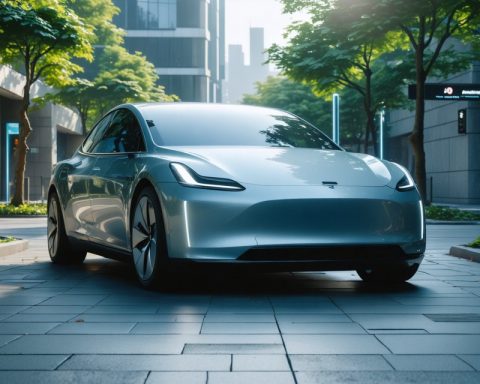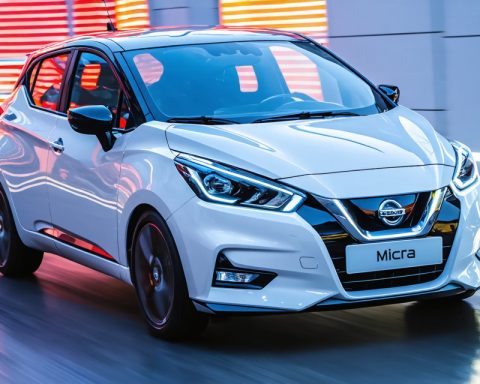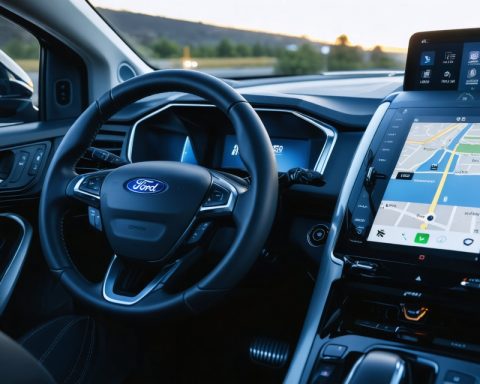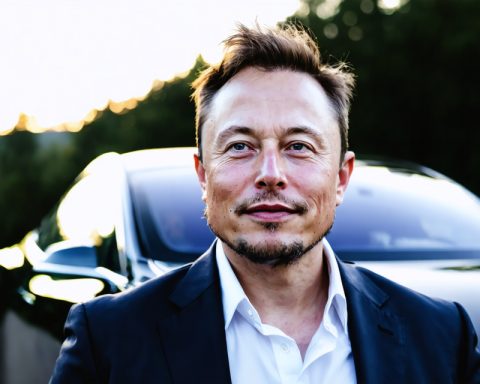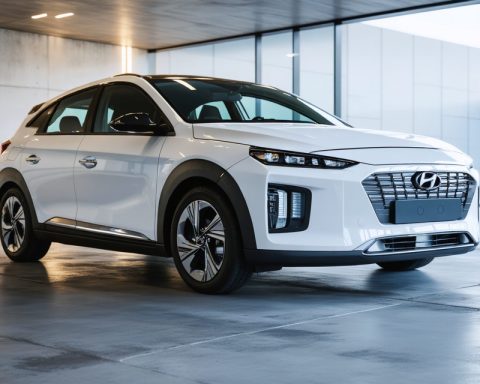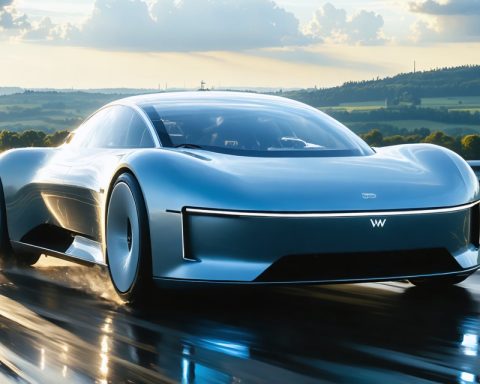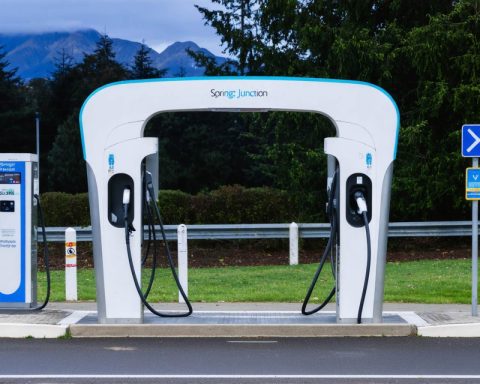- The global automotive industry faces unprecedented challenges as electric vehicle ambitions clash with geopolitical tensions and consumer skepticism.
- Profits for the top 14 automakers have fallen by 21%, with Tesla impacted by CEO Elon Musk’s political activities, affecting European sales.
- Volkswagen benefits from Tesla’s stumbles but faces inflated manufacturing costs in Germany, leading to significant job cuts.
- Porsche struggles with battery technology investments and high part costs, impacting its profitability and electric vehicle plans.
- Trump’s proposed 25% tariff on auto imports threatens German automakers, risking billions in profit losses.
- Chinese brands like BYD and Geely are gaining traction in Europe, intensifying market competition.
- The path to electrification and autonomy requires adaptability and collaboration amid shifting industry dynamics and economic pressures.
In the bustling heart of Berlin, the auto giants are embroiled in a storm of their own making as electric dreams clash with harsh realities. It’s a tale of innovation stifled by geopolitical skirmishes and consumer hesitance, painting a complex picture of an industry at crossroads.
The global automotive landscape is no stranger to upheaval, but the current challenges suggest something unprecedented might be on the horizon. Profits for the top 14 automakers have plummeted by nearly 21% over the past year. The relentless push toward electrification has been met with tepid enthusiasm across several markets, shaking the foundations of established players like Volkswagen, Ford, and Tesla.
At the center of the storm, Tesla finds itself grappling with more than just a shifting market. Consumers in Europe have grown wary of CEO Elon Musk’s political escapades, impacting sales. Tesla’s loyalists now decorate their cars with stickers nostalgically declaring, “I bought my car before Elon went crazy,” a poignant reminder of times when Musk’s vision seemed straightforward. Musk, now heading the controversial Department of Government Efficiency under President Trump, has let political entanglements overshadow his automotive ambitions. The company’s trajectory now hinges on a promise of self-driving taxis—a vision that could redefine urban transport but remains elusive.
Meanwhile, European automakers like Volkswagen see an unexpected silver lining amidst Tesla’s missteps. Displaced Tesla customers are seeking refuge in VW’s expanding electric vehicle portfolio. However, Volkswagen’s path is far from clear-cut, as inflated manufacturing costs in Germany trigger the need for drastic cutbacks, including a heart-wrenching job reduction by 35,000 employees.
Porsche, once an emblem of exuberance and speed, now faces a harsh reckoning. Burdened by hefty investments in battery technology and spiraling part costs, Porsche grapples with a steep decline in profits and a re-evaluation of its electric future.
The geopolitical stage adds layers of complexity. Trump’s declaration of a 25% tariff on auto imports looms large, threatening the already fragile balance of exports. For German titans like BMW, the tariffs pose a billion-euro threat to profits—a reminder that in the high stakes of international trade, no player operates in isolation.
On the Eastern front, the rise of Chinese automotive makers introduces a new dynamic. Brands like BYD and Geely are capturing European interest, their footprint expanding with each passing quarter. These companies no longer confine themselves to electric dreams; they actively engage broader segments, adding competitive vigor to the market.
Despite the maelstrom, the message resounds clear: the journey towards innovation demands unwavering dedication. The road to electric and autonomous vehicles may be fraught with challenges, but it also brims with potential for those ready to adapt and collaborate.
The automotive world sits on tectonic plates that are shifting under the weight of technological change and economic pressure. Automotive behemoths must brace themselves for strategic alliances and potential mergers; a future where going it alone is no longer viable. As manufacturers navigate these changes, the industry’s metamorphosis might redefine the very essence of how we perceive cars and mobility.
The Future of the Auto Industry: Navigating a Turbulent Transition to Electrification
Challenges and Opportunities in the Automotive Industry
The automotive industry is undergoing a profound transformation, driven by the dual forces of electrification and geopolitical upheavals. While automakers strive to innovate, they face a labyrinth of challenges that include fluctuating profits, consumer hesitance, and the ever-looming threat of political and economic instability.
Understanding the Current Landscape
1. Profit Decline: The top 14 automakers have seen profits drop by 21% over the past year. Such declines are not merely a result of day-to-day business dynamics but are deeply rooted in structural shifts towards a new era of automotive technology (source: Financial Times).
2. Tesla’s Dilemma: Tesla, a pioneer in electric vehicles, is grappling with the consequences of its CEO Elon Musk’s political engagements and how they impact consumer sentiment, especially in Europe. Musk’s role in the U.S. government underscores the intersection between political influence and corporate objectives, creating unique challenges.
3. Volkswagen’s Adaptation: With Tesla’s waning allure in some markets, Volkswagen capitalizes on expanding its EV portfolio. Yet, rising manufacturing costs in Germany necessitate significant restructuring, including job reductions, emphasizing the cost pressures inherent in the transition to electric mobility (source: Bloomberg).
4. Porsche and Battery Technology: Hefty investments into battery technology and rising input costs are significantly impacting Porsche’s profitability. The luxury car manufacturer’s experience underscores the challenges traditional automakers face in maintaining brand equity while transitioning to electrification.
5. Geopolitical Factors: The U.S-imposed 25% tariff on auto imports threatens European automakers, adding another layer of complexity to the international trade landscape. For BMW and others, these tariffs could mean multi-billion euro hits to their bottom line (source: The Economist).
6. Emerging Competition: Chinese automotive manufacturers like BYD and Geely are rapidly expanding into international markets, adding a competitive edge to the race for global EV dominance.
How-To Steps & Life Hacks for Automakers
– Strategic Alliances: Automakers should explore partnerships and joint ventures to pool resources and innovation efforts. Collaborations can be vital in shared tech developments, such as battery technology or autonomous vehicle software.
– Cost Efficiency: Focus on reducing production costs without sacrificing quality. This can be achieved through lean manufacturing processes and investment in advanced robotics and AI for efficient production lines.
– Consumer Education: Enhance consumer understanding of electric vehicles, emphasizing cost savings and environmental benefits over time to combat hesitance.
Market Forecasts & Industry Trends
– EV Market Growth: The global electric vehicle market is projected to grow at a CAGR of 22% from 2023 to 2030. The shift towards sustainable energy sources and government incentives play critical roles in this growth trajectory.
– Autonomous Vehicles: Self-driving technology remains a focal point for future mobility solutions. While timelines for full autonomy have shifted, semi-autonomous features in vehicles are increasingly common, with manufacturers like Tesla and GM leading the charge.
Reviews & Comparisons
– Tesla vs. Volkswagen: While Tesla offers cutting-edge technology and a robust charging network, Volkswagen provides a broad range of vehicles at various price points, appealing to different segments of the market.
Actionable Recommendations
1. Diversify Offerings: Automakers should consider broadening their EV lineup to include models that cater to varied consumer needs—from compact cars to SUVs.
2. Focus on Sustainability: Implement sustainable practices across the supply chain to meet growing consumer demand for environmentally friendly products.
3. Strengthen Digital Presence: Enhance online sales platforms and digital marketing strategies to capture and educate the EV market segment.
4. Policy Advocacy: Engage with policymakers to advocate for infrastructure improvements and incentives that facilitate the transition to electric vehicles.
Quick Tips for Consumers
– Research Incentives: Look into government incentives for purchasing electric vehicles, as these can significantly offset initial costs.
– Consider Total Cost of Ownership: When evaluating electric vehicles, account for lower maintenance and fuel costs over the vehicle’s lifespan.
Conclusion
The future of the automotive industry is ripe with potential for those willing to innovate and adapt. By focusing on strategic collaborations and sustainable practices, automakers can not only weather the current storm but also pave the way for a revolutionary era in personal transportation. As consumers, understanding the evolving landscape can help make informed choices that embrace the benefits of electric vehicles.
For more information on the automotive industry, visit Automotive.com.
